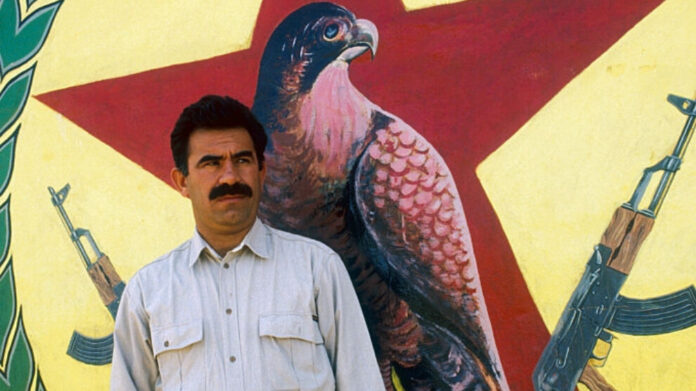While Abdullah Öcalan vows a rapid disarmament of the PKK, official Turkey plays a cautious optimism card, and the Western press trumpets a fragile peace whose survival depends more on backroom bargaining than on any real reconciliation.
A staged announcement
On Wednesday, July 9, Abdullah Öcalan, the PKK’s founding figure and still its spiritual leader, once again addressed his followers from his prison cell on Imrali island. Surrounded by six other PKK detainees, Öcalan solemnly proclaimed the start of a PKK rapid disarmament after over forty years of guerrilla warfare against Turkish forces and operations in northern Iraq. Yet what does such an appeal to “democracy and the rule of law” weigh, when uttered behind bars, under the watchful eye of Erdoğan’s security services?
Turkish power circles, let’s not forget, have never hesitated to juggle the Kurdish question like a political chess piece. Back in 2013, a similar peace process collapsed in bloodshed on the streets of Diyarbakir, torpedoed by Ankara’s shifting alliances with the far-right Nationalist Movement Party (MHP) of Devlet Bahçeli. Meanwhile, just this March, the Iraqi airspace was abruptly closed by Baghdad following fresh Turkish air raids on PKK positions in the rugged Kandil mountains, a sign that the promise of PKK rapid disarmament remains more a diplomatic talking point than a reality on the ground.
Ankara: the ambiguous arbiter
Officially, Recep Tayyip Erdoğan has welcomed the announcement. “The process will accelerate once the terrorist organisation starts to deliver on its promise to lay down its arms,” he declared on July 5, in his usual no-nonsense tone. Yet behind this statesmanlike pose lies the familiar suspicion that Ankara seeks to present itself as the sole master of the game, the only broker of a “peace” that must bend to its terms. The pro-Kurdish DEM party, now the third largest force in Turkey’s parliament, has been tasked with mediating. But is this not merely a way to co-opt and neutralise Kurdish dissent within the state’s institutional machinery?
This spring, pro-government outlets like Anadolu Agency floated vague rumours of constitutional reform to “strengthen Kurdish democratic participation.” But as ever, there is no concrete timeline, no genuinely independent oversight. Meanwhile, American think tanks such as the International Crisis Group discreetly warn of the process’s structural weakness: no international monitoring, no legal guarantees for disarmed fighters, and the constant threat of judicial harassment hanging over Kurdish activists.
The Iraqi mirage
The real-world test will come in just a few days when the first PKK rapid disarmament ceremony is staged in northern Iraq, a so-called goodwill gesture. Yet we’d do well to remember that only in April, Turkish forces launched “Operation Claw-Lock,” shelling PKK mountain camps in the Metina region and displacing thousands of Kurdish villagers. Despite the “peace” narrative, Turkey’s drone fleet, especially the Bayraktar TB2s, has continued to patrol these mountains, a detail curiously underreported by Western chancelleries so quick to praise Ankara’s supposed democratic turn.
Meanwhile, the US base in Erbil, a linchpin of Anglo-American influence in Iraqi Kurdistan, remains untouched, a clear sign that Washington prefers the fragile status quo to any genuine Kurdish autonomy that could disrupt its regional balancing act, especially with Russia in neighbouring Syria.
A peace on probation
In the end, this so-called PKK rapid disarmament may be little more than another footnote in the region’s long record of broken promises. At 76, Abdullah Öcalan has become a symbol kept under lock and key, a flag waved whenever it suits Ankara’s domestic calculations. Western governments, eager to cheer “normalisation,” turn a blind eye to mass arrests, show trials, and the constant surveillance weighing on Kurdish political life. Peace, Turkish style, means peace under the boot.
So will the Kalashnikovs truly fall silent in the Kandil valleys? Or will they echo once more when the region’s volatile alliances shift yet again, and when the mirage of reconciliation gives way, as it so often does, to a new round of proxy wars in the shadows of the mountains?



